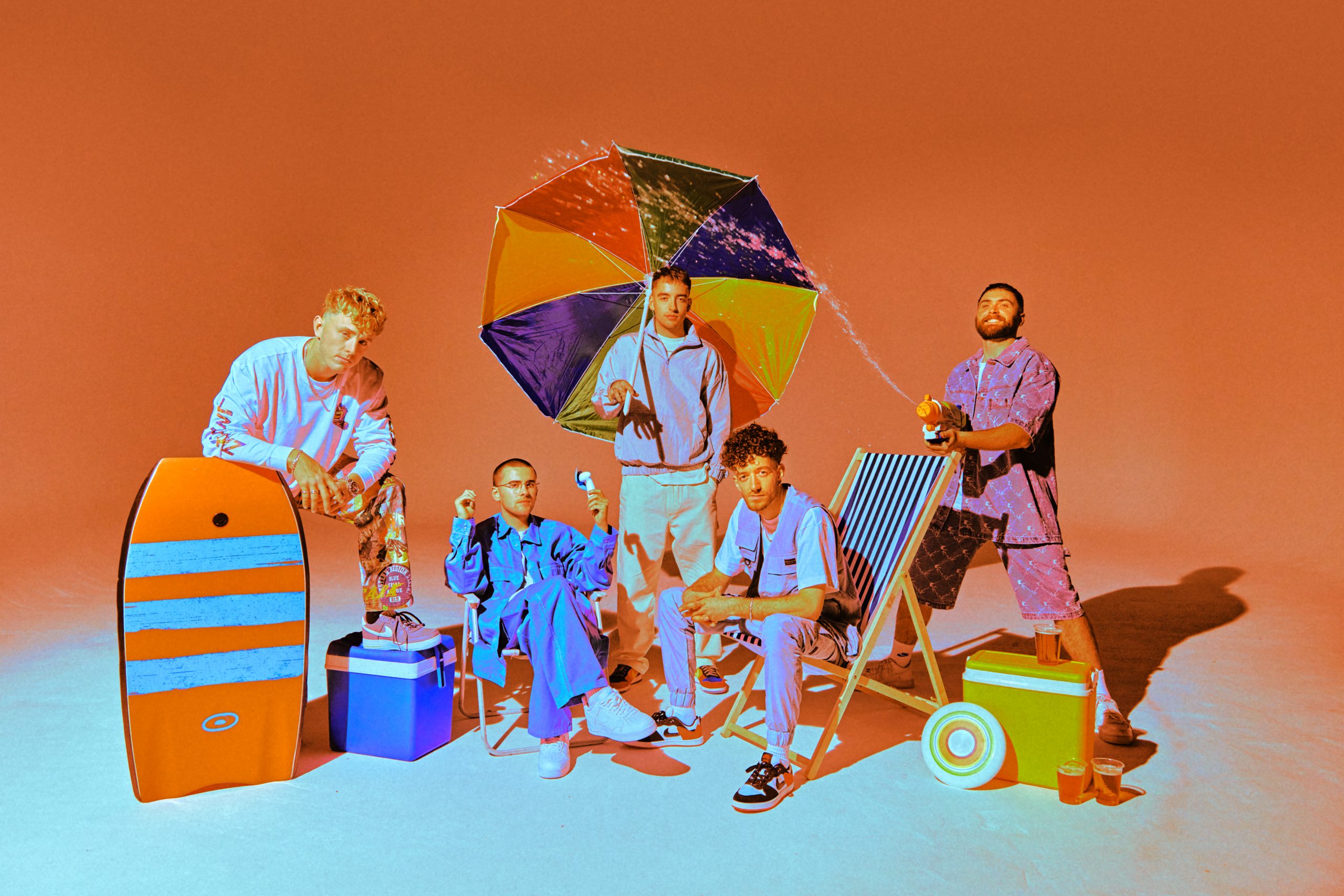He comes to us from the United Kingdom and refers to his band’s new album, Life’s a Beach, which is currently sitting at hundreds of thousands of streams on Spotify since its release just shy of a week ago. Even more impressive is the fact that it represents the debut studio album from the act, who never really shot for the mainstream but ended up there in any case.
“Now we get played on the radio and things, which is mind-boggling, but I think we’ve always been an alternative outfit and it is where we come from, stylistically,” he comments. There is no pressure on Easy Life to go any further than that in classifying themselves either, as we enter into a time where, as Matravers puts it, “we work fine without labels.” He elaborates: “Genre’s always been something that we don’t ever really think about or care about. I think that’s also the modern world, isn’t it? It’s very millennial to be like that. And I don’t think our generation particularly needs those labels to work.”
He’s right, of course; no record has ever benefitted from an artist taking the misguided advice of staying in their lane. And that’s exactly what Easy Life refuse to do, which might be why Life’s a Beach resonates so intensely to anyone listening to the record. There’s no angle or attempt to capitalise on one genre or theme – instead, Matravers and the band take you on their journey through navigating life in the Western world, sometimes related to the events of the last year and sometimes undated and universal.
“Most of it was written during the pandemic and it was certainly recorded and produced during the pandemic and collected,” Matravers caveats, although, as previously stated, he didn’t want to be crass in trying to deconstruct the global health crisis head-on. “We were all fed up with talking about it,” he adds. “You don’t need to turn on music and they’re [the band’s] still talking about. But the themes of claustrophobia and paranoia and missed opportunities, those really do run through the album, and that was definitely because of the circumstances.”
He’s not saying that it’s not a big deal (“the stories that you hear from friends who work in hospitals, they’re changed forever, it is literally trauma”), more so that while it was informed by his context, it also navigates his experiences daydreaming about the future (‘daydreams‘) and reflecting on his past (‘a message to myself‘). At the time, those considerations offered Matravers something to chew over other than his immediate surroundings, in lockdown seeing the same four walls day after day and hearing about death tolls on the news in the same sequence.
“When this [the pandemic] first happened, I literally just fell out of love with music. I didn’t even listen to much music, you know? I think everyone was like that, just glued to their laptop or their phone, like: ‘What is going on?’ As soon as I did get back into music, it was quite easy for me to think about other themes that weren’t necessarily super about the pandemic, because I was using music as an escape from having to think about all of the news and all of the situations. Anything I could remind myself of like nostalgic times, in love or out of love, that was a nice thing to think about because it was something that wasn’t necessarily strictly about being locked down.

“And I think everybody needed something to think about that wasn’t the current situation. I was so lucky to have something to do and something to work towards or something to think about that wasn’t COVID, because so many of my friends and family did start to get really depressed and obsessed with the whole thing. I think it’s easy to do. I think I’m still obsessed with it. I think everyone is, it defines everything at the minute. So anything that I could write that wasn’t that…I was definitely all for it.”
Despite only seeing its release last week, the debut album from Easy Life was actually finished in the final months of last year, which has given Matravers approximately six months of time where he wasn’t writing towards the record. He has, however, continued to put his pen to paper, moving forward in very much the same vein of trying to channel as much of the complexity of the human experience as possible into his music, rather than letting it play on his mind in the dark while he’s trying to sleep.
“I’m actually working on the second record already,” he reveals. “My themes are always like really dark, but all of the music sounds really happy, so don’t get me twisted – it’s not going to be this depressing! But a lot of the things I’m writing about are regret and what could have been…I’m obsessed with the idea of choice. This is probably just this week, next week I’ll be writing about something else. But I’m obsessed with the idea of what would have happened if you had chosen something differently and also, thinking that you might have said something weird to someone on a night out. I don’t know if you get that, where you go home and you’re like, ‘I cannot believe I said that.’ That feeling is a feeling I have a lot. So I want to enhance that into an album, that anxiety of like, ‘Did I make a bad decision or is that just normal?'”
It certainly is normal, although the articulate nature of the way that Matravers is able to express it is anything but. Some of us will never have the honesty that Matravers possesses, although the fact that he has it empowers us to feel less alone about what we’re going through, which might be just as good. Apart from reliving his most awkward encounters, Matravers is still very much part of a community that is doing their best to pull themselves out of the pandemic, but he’s optimistic that Britain will get through it, as will the rest of us. In the meantime, he’s hopeful but cautious about what else he gets excited about until we know for certain that we’re out of the woods, with risks of cancellations always looming close by.
“Anything that my manager says we’re going to do, I’m like, ‘Probably not, though.'”



